#I'm collecting quotes
Quote
At least Mensah and Arada had overruled the ones who wanted to talk to me about it. Yes, talk to Murderbot about its feelings. The idea was so painful I dropped to 97 percent efficiency.
The Murderbot Diaries: All Systems Red, Martha Wells, 2017.
57 notes
·
View notes
Text
A book that doesn’t mention my language or my country, and has maps of every place except for my birthplace, as if I were an illegitimate child on Mother Earth.
Borders are those invented lines drawn with ash on maps and sewn into the ground by bullets.
— Mosab Abu Toha, from "Palestine A–Z," Things You May Find Hidden in My Ear
#quote#mosab abu toha#poetry#things you may find hidden in my ear#out of my collection#calibre seems to have lost my highlights from april and i've not been able to read in months so i'm at a loss#palestine a–z
2K notes
·
View notes
Text

Thinking about Disco Elysium and stars. Something about communal experience and simultaneous isolation, hope and idealism, fear and beauty and terror and burning. The inherent horror in the vast romantic starscape of the sky, the melancholy and loneliness inherent in the untold distance, a communal experience of something too enormous to fathom. Stars bear witness to humanity, to the millions of tiny people crawling on the face of Elysium. They watch the people, and the people watch back, and make up stories about the stars. Stars symbolise love, hope, something unreachable and unattainable.









The way that the light of the stars reaches every single being in Elysium, from human to phasmid, but no matter how far it reaches it is still a cold and distant glow, always on the verge of going out. A moral brilliance, a holy light to strive towards, something always at risk of burning out, but there's a dichotomy too. A duality between the stars as brutal unfeeling observers, moralists even, like the aerostatics flying overhead, tiny dying lights that watch impassively over every terrible thing in the world, and the flipside; stars as the burning kernels of hope, furious burning flames that parallel Harry and his golden-orange forest fire nature. Stars as the light of communism, the star-and-antlers. They're hope and dreams- a million years in the stars. Rockstars and superstars. The light of a brighter future (however short-term that future might be) coming towards them at the end of the tunnel. It makes me think of Sacred and Terrible Air and the light pollution in Vassa- ending light pollution as the world ends. "You may laugh at this, but in the evening, when the big world in the distance swells into a bloody maelstrom, families come out into the street in Vaasa and are insignificant together. Only distant explosions disturb the deep peace of the winter night, its flawless starry sky. Everyone watches, heads tilted back." The stars are a shared experience. Something that everyone watches, insignificant together, when there's nothing more that can be done. Light in the face of darkness, community in the face of inevitability. Togetherness. The stars are there in the church with the ravers. They're there watching Harry and Kim together. Insignificant together. In dark times, should the stars also go out?






#i'm collecting quotes for another thing and i just like all of these together idk#disco elysium#de rambling#my brain is so full of cotton wool rn so sorry if this is. garbled sddjjdsk#long post#i am really sorry for the incessant longposts#sacred and terrible air spoilers#pjõl spoilers#i guess? also very much oversimplifying there#i just. idk. i have feelings about that bit#it's the team ibex translation btw#stars manage to encapsulate both moralism and communism lol- inaction+distant observation versus fire and passion and feeling
497 notes
·
View notes
Text
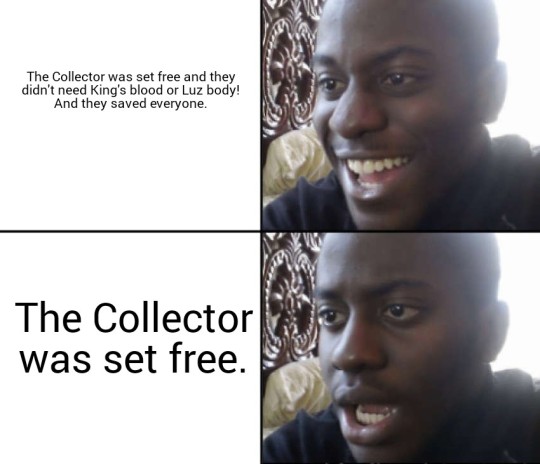
#the owl house#toh spoilers#toh s2b#toh season 2#owl house#kings tide#toh s2e21#the collector#the owl house spoilers#i dont get memes#did i make it good?#i fell so old#i dont feel safe#quoting cerrtain frog#i'm crying#why this post collect more likes in one day than the posts I actually put my heart in#what is my life#i hate this post#but i love the love you guys give me
5K notes
·
View notes
Text
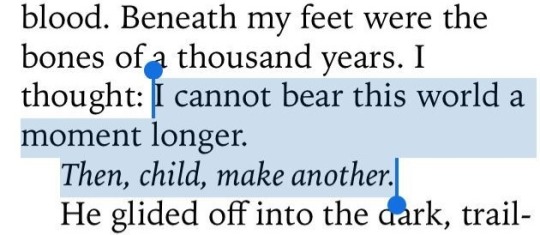

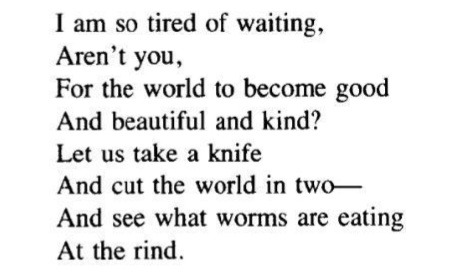


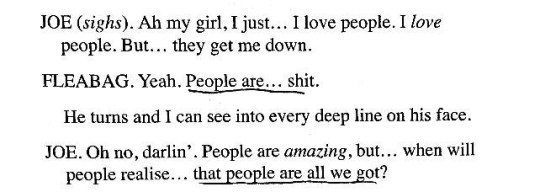
Fleabag // Madeline Miller, Circe // Mieko Kawakami, Heaven // Hayao Miyazaki, Princess Mononoke // Langston Hughes, "Tired" // Darshana Suresh, Howling at the Moon
#theme: a cursed world#i'm sorry#we don’t have any choice#this is the only world we have#so let's be kind to each other#web weaving#webs#poetry#aesthetic#prose#prose poetry#art#collage#literature#collection#books#book quotes#novels#novel quotes#film#film quotes#quotes#words#hayao miyazaki#princess mononoke#studio ghibli#ghibli films
301 notes
·
View notes
Photo
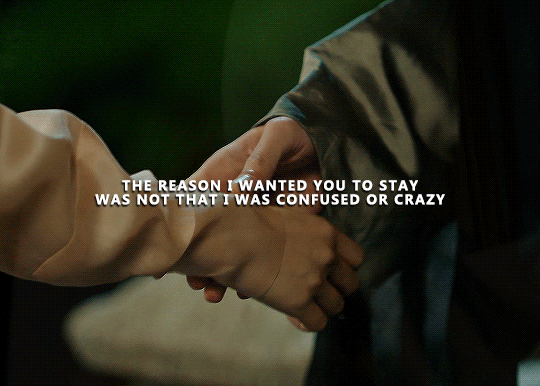


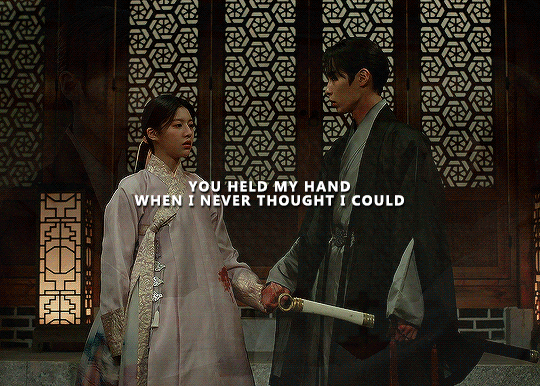
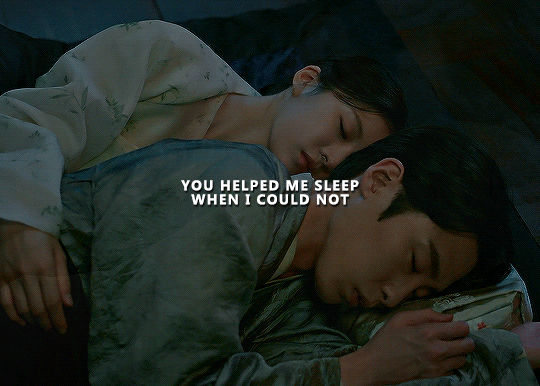

So I will be the brazier on a summer day. This time, I will be the one waiting until you begin to miss me.
#alchemy of souls#alchemy of souls: light and shadow#alchemy of souls 2#kdramaedit#kdramadaily#kdramanetwork#kdrama#kdramagifs#samblr#tosnimeat#udeokmis#userhannah#useryd#tuseralexa#mufaloedit#alcofsedit#this quote slaps#not at me collecting all the scenes that didn’t make it to the previous quoteset and putting it in this one#gei if you see this when s2 ends i'm just gonna gif all the painful parallels from s1 hehehehe
662 notes
·
View notes
Text
"Does it make sense?"
I think, ultimately, the thing that it comes down to for why I just can't see "the Jedi are intentionally written as dogmatic/dispassionate" or "Obi-Wan failed Anakin" or "the Jedi brought their own downfall" reads as valid anymore is because... it makes no sense that George Lucas - of all people - would write that.
Like, this is the guy who preaches the same lessons and philosophies that the Jedi do in the Prequels, every chance he gets (sometimes going all the way back to American Graffiti).
So ask yourself:
Does it make sense that he would intentionally make the characters to whom he gave his own values "dogmatic"?
He's a self-proclaimed "methodist-Buddhist". The Jedi are based on Buddhist monks.
youtube
Does it make sense that the buddhist would write a story about space-buddhists being "emotionless", "devoid of compassion" and "at fault for their own genocide"?
Lucas had an apprenticeship, that turned into a friendly/brotherly bond with his mentor Francis Ford Coppola. Their personalities were completely opposite (Coppola was more outgoing, George was more prudent) but they worked in sync, they completed each other.
youtube
Do you really think that this guy's intended narrative would be that "Qui-Gon would've been better-suited for Anakin as a teacher than Obi-Wan because the latter was prudent/strict and too different from the more passionate Anakin"?
George lays Anakin's downfall on Anakin's shoulders almost every time he talks about it. It's a corruption that was caused from within, he would be able to love without getting attached if he had joined the Jedi at an earlier age, but he didn't so his attachment and greed results in his turn to the Dark Side.
youtube
So does it make sense that Lucas' narrative would be that "the Jedi (aka EXTERNAL forces) pushed, denied and failed Anakin that they caused him to turn" instead of "it was Anakin's own fault because he wasn't able to let go"?
He has said multiple times that, aside from Anakin's downfall, the Prequels center on the Republic's downfall, never mentioned the Jedi once when describing what the Prequels are about.
youtube
If the Prequels were actually about "the fall of the Jedi and how they lost their way", wouldn't he have brought it up once?
And would he really have focused so much on the Senate and politics rather than adding more development to characters like Mace and Yoda?
I think the answer to all of these is "no".
Here's one more: Lucas stated so many times that this was a fairy tale, that all six Star Wars movies are meant for kids. The situation of the Prequels is more complex than the one in the Original Trilogy, but before, during and after the Prequels Lucas confirmed that the Star Wars morality is binary, it is black and white, good vs bad.
Would he really intentionally make the Prequels this subversive story wherein "actually, if you stop and think about it, the good guys are really the bad guys"?
Or is it just that:
We live in a time where movie audiences expect the "good guy" to be individualistic, flawed and non-conformist, and the Jedi are a community of nigh-incorruptible champions of good who've already completed their character arcs.
So the adults (aka not the target audience) who watched the Prequels at the time were turned off by these characters who they perceived as "holier than thou", having been conditioned by the times they lived in to think that there are skeletons in "Mr. Perfect's" closet.
Thus, they retconned the films (via comics, books, games and episodes) so that they could enjoy the Prequels more, and did so by:
injecting more realistic "gray morality" themes into the films and
projecting an oppressive "boys don't cry" philosophy onto the Jedi.
For lack of a better metaphor, "they put a skeleton in Mr. Perfect's closet so that they could finally find his existence bearable, and keep bringing up that skeleton to this day."
#jedi order#george lucas#star wars#long post#meta#in defense of the jedi#pro jedi#Youtube#trying something different#instead of posting quote collections I'm posting video compilations#hopefully it'll work#lucas quotes
278 notes
·
View notes
Text
I bought and read the sun and the star today and..... nobody talk to me rn. I can TELL where mark oshiro pulled through for us. this book is so unapologetically queer, and melded with rick's always wonderful action sequences makes for such a lovely read... it really solidifies Will and Nico's chemistry and history and the wonderful way they love both romantically and as friends.... it never fell into the miscommunication trope even when the boys argued, and instead had them talk it out and be so transparent the whole way through...... it was so cavity-inducing-ly cheesy with just the right moments of incredible fluff and tragedy. I just love them. I love how dorky they are together. two cringe fail (affectionate) losers who are just so so smitten by one another and putting in a beautiful and mature effort towards loving one another the exact way the other needs to be loved. I am just so happy that this book exists within the riordanverse canon
#solangelo#the sun and the star#will solace#nico di angelo#rick riordan#riordanverse#Percy jackson#the heroes of olympus#WILL SOLACE NATION RISE!!!! istg I have been obsessed w this bitch since he was a barely mentioned minor character in tlo#and to see him now on the COVER of a book ...... yeah I'm ill.#book didn't overstay its welcome and like all my bingo predictions came true#I'm just...... heart so full......#need to collect my thoughts.... but yeah.... yeah it was good#so many amazing quotes. so much artwork potential#and if u didn't like it well that's okay! but I could not stop smiling my whole read through & to me that is worth something :]
272 notes
·
View notes
Text

#I'm baaaaaack#stickvin#henry stickmin#charles calvin#the henry stickmin collection#thsc#incorrect quotes
108 notes
·
View notes
Text
I dream but the night is still far,
by laurenmaerie, tired thoughts
#laurenmaerie#i'm tired#writers and poets#excerpts#writings#literature#poetry#fragments#selections#words#quotes#poetry collection#writers on tumblr#love#feelings#mental health#mental health awareness#life quotes#thoughts#poem#original poem#short poem#poems and poetry#poems and quotes#poems on tumblr#prose#heartbreak#i miss you#life#I love you
30 notes
·
View notes
Quote
Yellow came toward me and touched the side of my helmet. It took a tremendous effort for me not to rip his arm off, and I'd like that noted for the record, please.
The Murderbot Diaries: All Systems Red, Martha Wells, 2017.
41 notes
·
View notes
Text
TG: do you think former president ronald reagan smacks rats
EB: sssmacks…rats?
TG: yah do you reckon he smacks rats
EB: oh yeah he TOTALLY smacks rodents—what in GOD’S NAME are we talking about
#submission#homestuck#incorrect homestuck quotes#dave strider#john egbert#mod terezi#i'm with john here but i totally agree that reagan smacks rats#but only if that is meant as an insult#anyways i'm bopping to rush rn i kinda wish music on the radio wasn't so regimented#sometimes i wanna go from ajr's karma to rush's freewill to heart's barracuda and back to lil nas x's old town road#the media could stand to be a little more eclectic and delineated is all i'm saying#it's not gonna kill anyone if we have some fucking variety that makes no sense to the advertisers#but exposes people to enriching experiences that they may not have experienced otherwise#like a while ago i was talking with mod kanaya and they've never heard of blue oyster cult before#and i was like wtf you need to listen to it#if only the once for no other reason than just for something you've never heard before#maybe i should start a vinyl collection and do amateur djing out of my room#anyways if you're following us and are under the age of twenty go listen to blue oyster cult right fucking meow#this is my one command to you
69 notes
·
View notes
Text

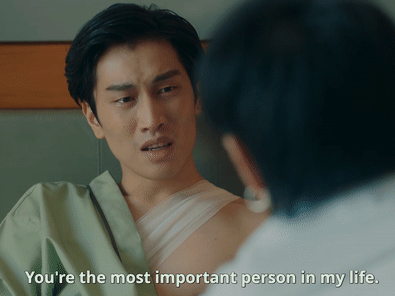
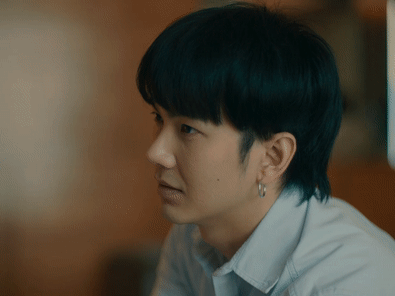

Baptize me
with new names
so I can exist
Myrsini Gkana - I have other things I love too
#Yeah this poetry collection destroyed me#so many poems fit VP so I decided to create a little post about it#tbh this one could fit their NC scene too but there's no dialogue so it would be a little tricky to find the correct gifs#I wish I knew how to create gifs that have quotes on them like so many lovely people have done for the fandom#but I don't so this is the best I can do folks#it was very important to me that Pete's sigh was included here#vital addition I'm telling you#anyway#there are a LOT of poems in that collection so maybe I'll make another one#hope I get the brainworms for it#kinnporche the series#vegaspete#pete phongsakorn saengtham#vegas theerapanyakul
68 notes
·
View notes
Text
this isn't really coherent, I might turn it into an actual structured.. something something later, so don't take this as anything but my brain notes getting jotted down, especially since the nature of discussions on class, wealth, capitalism, vampire symbolism, gothic themes, etc. are all a lot to get into casually here. but I'm. endlessly fascinated by cazador's reputation as a socialite in baldur's gate, the rat motif, astarion's obscured history as a magistrate, and how the game fucks around with classic gothic vampire aesthetics to an almost egregious degree. zero trying to pretend they're not calling back to what the "vampire" imagination evokes here.
the ostentatious yet dilapidated state of the mansion. the egregious wealth but the floorboards are moldy and bloody and miasma fogs the hallways. the rooms are dark yet opulent... the corridors loom over you and are strewn with many fine paintings you can barely see for the lighting, the floors are plush and carpeted and red. but the whole place at the same time is disgusting. bloody. thick with rot and feels almost rundown. I cant remember the exact line in the companion dialogue with shadowheart and astarion where shadowheart asks what to expect of vampire lairs, but it ends with him describing them in a way that's almost--fetid. cazador's wealth is on display and yet the whole place is rotten to the core, meaty and disgusting and full of horrors.
and this works in conjunction with the way astarion plays at class, elitism, and wealth. he plays the part of it quite well; he sniffs and turns his nose up, offers to take karlach to the upper city, his introduction is him telling the player that they "move in different circles," (the implication that astarion moves in elite circles, when in fact in act 3 he reveals he mostly spent time in lower city taverns). I'm not sure how to elaborate what I'm trying to get at here with the play between the rotten wealth & astarion's "playing" nobility; astarion's mortal life is only gestured to, as a magistrate, but you can feel the bones of it in astarion's character still. he plays the role shallowly well, when everything we learn about him directly counters any notion he was ever the social elite he plays at in the beginning. how astarion interacts with the others through his still distinctly elitist + wealth-centric lens despite quite literally being enslaved for the last 200 yrs (my life was bad but at least I'm not you. that mindset is rife for unpacking in terms of how he places himself above others so often, and recoils + is aghast when he sees himself especially paralleled with those he sees as lesser or weaker). if he came close to touching high society, it would have only been through cazador's own social parties with the upper nobility of baldur's gate (and even then, we don't know if he attended, if he was expected to play a role there, or if he was sequestered away). like the mansion's finery, astarion's own display of elitism is hollowed out, rotten when you actually see it, down to the worn out hems of his finery.
astarion, whose most often reoccurring animal motif is a rat; vermin, unfit for consumption; the symbolism there is RIFE. rats play double; coward, vermin, unfit for the finery of the house; rats as symbolism for disease, decay, infestation. vampires infest and feed on baldur's gate. astarion is, in many ways, a rat himself; a schemer and fearful. the game doesn't really try to comment intricately on social structures, classism, or vampires as symbols for the parasitically wealthy; in act 3 the focus is much more on the fucked up family dynamic, the social hierarchy between cazador and the spawn (and that's an entire thing in of itself; astarion weaponizes the cycle of abuse over the spawn as quickly as he expresses sympathy for them). or if it's trying to do a real critique of wealth & using vampire tropes to do it, there's nothing necessarily.... intentionally placed there as critique. but it's still very much in line with the gothic horror symbolism that oftentimes does utilize the vampire as a way of cracking a bit at the Horrors of the Rich. intentional or not, it's very interesting. rats! the way the rich are parasites on the land! the way the cycles of power rotate between the spawn as they all claw for favor and security and power in the house but ALSO hold themselves higher than the human servants or the werewolves!
#bg3 meta#stuck in fucking ACT 1 when I want to REPLAY THE CAZADOR MISSION RIGHT NOW. I'm SICK.#does this make sense to anyone. do you see the dots being connected here.#it needs something structured & I'd want to collect screencaps + quotes to make it all work but#woe the horrors of parasites and the wealthy and the way that power + wealth + social image still clearly play a role in#how the spawn interact with each other and also with cazador and also how they view their victims --#or well. at least how astarion does#bg3 spoilers
110 notes
·
View notes
Text
The Analects of Debbeh.
↳ now on youtube
#I learned a new word today!#analects: a collection of excerpts or quotes#also: I'm on fire!#2 edits in as many days#going out with a bang so to speak :P#happy new years!#yonderland#yonderland edit#elder vex#ben willbond#six idiots#them there#maddie's yonderland tag#maddie's video tag
36 notes
·
View notes
Text
y'know it's funny how we talk about certain fan reactions to izzy's death bc i watched the recent m*a*s*h documentary where they talked about abyssinia henry (an episode which kills off a major character) and there was a clip of the showrunner quoting angry letters he received after that episode aired:
'you tricked us' 'you sucked us in' 'we thought this was a comedy show' 'how dare you toy with our feelings'
this is a show set in the KOREAN WAR and people still felt a character death was a 'trick' and a betrayal. not only that but i cannot express how thematically relevant and important this death was for the entire thesis of the show. and yet they received 1,000 letters from viewers about it (though some were praising the episode, and it is overall viewed positively in retrospect).
idk i just found it interesting. this episode came out in 1975 and nothing's really changed.
start discourse on this post and i'll cut off your toes.
#this isn't even really about izzy it's about fandom in general i'm just using him as a jumping off point bc the quotes rang SO familiar#(this is actually a response to a post that i couldn't reblog for some reason (maybe op blocked me? i genuinely can't imagine why))#(which began: the way people cannot take any negative thing happening in tv shows these days is genuinely frightening and incredibly tiring#(i agree but i also think the 'these days' part is overstated... this has always been happening)#(idk if that post was about the ofmd finale but it was posted right after it so)#anyway fun fact: these letters were on display in the smithsonian!#i don't think they're still on display but i do believe the smithsonian retains the whole mash collection#what an interesting piece of fandom history
24 notes
·
View notes